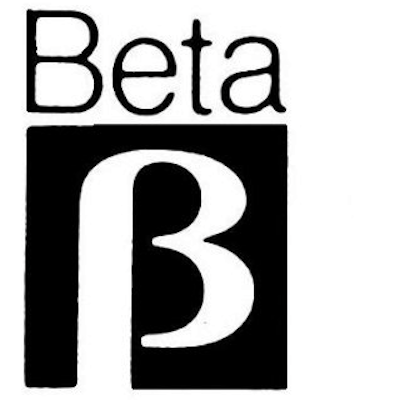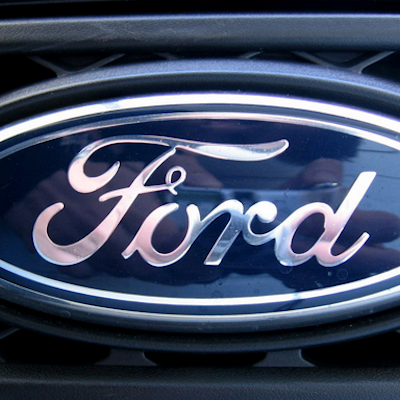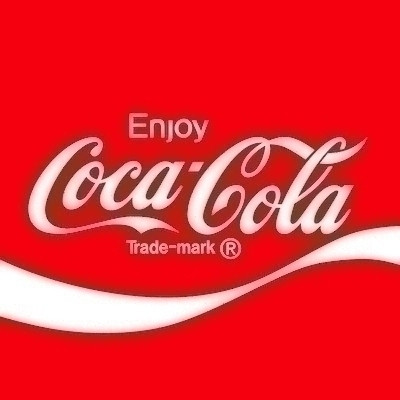Study Highlights Value of Competitive Advantage to RI’s Economy
Monday, February 10, 2014
Economic Intersections of Rhode Island is a private-sector generated report dedicated to collaborative solutions to jumpstart the Rhode Island economy. The report was written based on the contributions of more than 200 distinguished business leaders, service organizations, and professionals from across the state. Jointly published by The Rhode Island Commerce Corporation and the Rhode Island Foundation, Economic Intersections of Rhode Island synthesizes the collaborative proposals made by the teams of participants. This week, GoLocalProv shines a light on the first of the report’s five major themes, examining the most creative, bold and exciting proposals for how to get the Ocean State back on its feet. To get the most thorough and groundbreaking economic breakdown of the report’s specifics, we turned to our business partners at Bank RI for commentary and analysis.
“Increasing Impact of Competitive Advantages”
“Increasing Impact of Competitive Advantages” attempts to solve Rhode Island’s economic woes not by bemoaning what the small state does not have compared to its fellows, but instead by assessing where and how Rhode Island is uniquely positioned to succeed. This first section examines Rhode Island’s historical strengths and advantages and looks at how those fit into the future of economic development to help give this little state with a lot going for it a leg up.
GET THE LATEST BREAKING NEWS HERE -- SIGN UP FOR GOLOCAL FREE DAILY EBLASTTourism
The very first item on the report’s agenda is resuscitating Rhode Island’s tourism industry, which has been in free fall with a 19 percent decline in visitor spending between 2007 and 2009. While other states earmark approximately $10 million for tourism budgets, Rhode Island’s has currently shrunk to a paltry $500,000. In the latest available forecast, this added up to a 14% decline in market share against other states. If the state had maintained the share of the tourism market that it claimed in 2007, the RI Foundation expects Rhode Island would be now benefitting from $375 million in revenue, not to mention 6,800 new jobs and a tax revenue boon of $87 million.
The proposals to reverse this decline are twofold. First, the RI Foundation proposes to convene stakeholders to advocate for higher levels of marketing funding, focusing on legislation to come from the Statehouse. The second proposal is to develop a narrative for Rhode Island, one that goes beyond “a cute slogan.” The RI Foundation seeks to incorporate the unique capabilities, history and character of Rhode Island into a narrative that can permeate the state’s marketing campaign.
Marine-Based Businesses
The proceeding item within this section is the promotion of water and marine-based businesses. With the total economic impact of maritime trades totaling about $2.2 billion in sales for local businesses—which translates into $118 million of state and local tax revenue—it is clear just how important the ocean is to the Ocean State.
The report proffers several proposals for how to build on Rhode Island’s economic investment in its maritime industries. It advocates creating a marketing strategy for the marine economy, advertising the continuum of boat building and repair services offered in the East Bay corridor, promoting the state’s marinas as “mini resorts,” raising the profile of Rhode Island seafood, and other solutions including an app specific to water-based businesses. The report also urges engagement with municipalities to encourage the building and maintenance of piers, marinas and other aquatic infrastructure. Finally the RI Foundation encourages higher levels of collaboration and shared resources between ports and water-based businesses.
"The continued development of Quonsett Business Park has been key to the success of Rhode Island's marine based industry and will continue to be a driver of the State's economy as we move forward, " said BankRI President Mark Meiklejohn. "The ability to link the port and rail will allow existing businesses to continue to expand and will attract new business to Rhode Island."
The Rhode Island Center for Design and Manufacturing
Rhode Island, home to the Rhode Island School of Design and a long history of manufacturing prowess, received a federal grant in 2013 to develop the Rhode Island Center for Design and Manufacturing. A group of stakeholders, including several area colleges and Universities, in addition to RISD, Commerce RI and the Rhode Island Manufacturing Association, are currently working together to create a permanent space to combine resources and ideas on manufacturing and designing Rhode Island’s future.
Supporting High Growth Company Opportunities Through Tech-Transfer
The RI Foundation helps to protect and encourage startups within the state. Responding to concerns from technology and science-based businesses having a difficult time connecting with the public and business partners within Rhode Island, the Foundation encourages increased collaboration between small new businesses and between those businesses and other sources of capital. In order to achieve this the RI foundation calls for publicizing and strengthening the intellectual property behind these new businesses. In addition, the Foundation hopes to partner the businesses with more established enterprises, coordinating personal connections and creating a more technologically flexible and user-driven marketplace.
Accelerate Opportunities Provided by the Bioscience, Neuroscience and Medtech Sectors
The first section of the report concludes by encouraging Rhode Island to build upon its advantages in the medical technology and research industries. Home to premier universities and colleges, including Brown University and the University of Rhode Island, both of whom have large sectors devoted to neuroscience research, plus Lifespan’s Prince Neuroscience Institute, the state is a leader in studying previously unexplored aspects of the brain and the body.
To help capitalize on these already-existing investments, the RI Foundation urges greater collaboration across the state. It seeks to create a cross-sector team from the Biotech, Medical and Public Health industries (a working group of professionals from these field have already agreed to begin the studying the report calls for). Similar to the proposal earlier on in the section for the state’s tourism industry, the RI Foundation calls for creating a narrative and a brand for Rhode Island’s cluster of health-related businesses, which would tie into Rhode Island’s “state-wide story” and with national and global developments within these critical industries.
"Rhode Island's medical science sector is first tier; however, it can be overshadowed by Boston," explained Meiklejohn. "Bringing recognition to this community as a center of expertise will have a significant and positive impact on the State's economy."
This column is part of an ongoing sponsored content series with BankRI.
Related Slideshow: 10 Historically Bold Moves Made By Big Companies
Related Articles
- Blais: RI’s Leaders Need an “Ah-Ha” Moment Soon for the Economy
- LISTEN: RI Economy on the Rebound?
- State Seeking Strategic Plans to Address Economy
- Block/RI Taxpayers Organization Challenge General Assembly on Economy
- Lardaro Report: RI Economy Stalls
- Study Finds Racial Gaps Putting RI’s Economy, Future at Risk
- CCI Report Shows RI Economy ‘Shifting Into High Gear’
- NEW: Providence Voters Pessimistic on Economy
- Curtis Parvin: Impersonal Consumerism in a Failing Economy
- NEW: RI Economy Continues to Grow, Report Says
- URI Expert: RI Economy Following ‘Stop and Go’ Pattern
- Executive Office Of Commerce Won’t Help RI Economy—Critics
- NEW: Report Says RI Economy Picking Up Steam
- URI Expert: RI Economy Gaining Momentum
- 13 Biggest Business Stories in RI in 2013
- Exposing the Big Lie of the US Economy
- New RI Web Site Ties Legislatures Failure to Economy - www.OSTPA1.com
- What Rhode Island Can Do to Move the Economy Forward
- Aaron Regunberg: How Walmart Workers Could Save the U.S. Economy
- Is RI’s Economy on the Rebound?
- Rhode Island’s Struggling Economy: Top Stories in RI in 2012
- Alex and Ani Fuels Economy - Creates Thousands of Jobs in RI
- Julia Steiny: Economy To Youth: Make Your Own Jobs
- Russell Moore: Election 2014: It’s the Economy, Stupid























